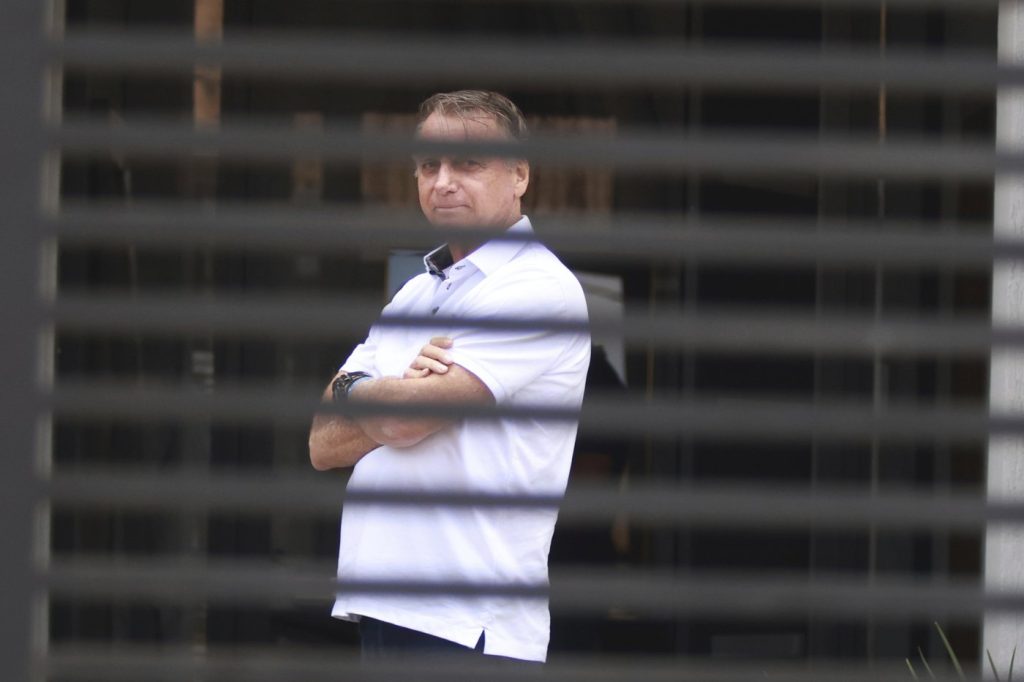SAO PAULO (AP) — Former Brazilian President Jair Bolsonaro was recently convicted and sentenced to 27 years and three months in prison by a Supreme Court panel for attempting to orchestrate a coup. Bolsonaro, who is currently under house arrest and in poor health, did not attend the court sessions, with his lawyer citing illness as the reason for his absence. Despite his conviction, experts believe that Bolsonaro's political influence will persist in Brazil's complex political landscape.
Public opinion remains divided over Bolsonaro's actions and punishment, which reflects the polarized nature of Brazilian society. Before his sentencing, thousands of Bolsonaro supporters demonstrated across the country during Independence Day celebrations. Among them, Luiz Niemeyer, a 62-year-old businessman in Rio de Janeiro, expressed admiration for the former president, asserting that his ideals would endure regardless of his legal troubles.
Recent polls indicate that Bolsonaro still plays a significant role in Brazil's political future. Although President Luiz Inácio Lula da Silva is regaining popularity and is anticipated to run for reelection, a hypothetical scenario shows Bolsonaro with a slim lead in electoral support, taking 45.4% of votes against Lula's 44.6% in a recent AtlasIntel poll conducted from August 20 to 25, 2025, with a margin of error of 1 percentage point.
Interest in Bolsonaro's conviction and potential imprisonment varies; a Datafolha poll from August revealed that 48% of Brazilians support imprisoning him, while 46% wish for his freedom. This division underscores the complexities surrounding his political status. Isabela Kalil, an anthropologist, asserts that Bolsonaro still commands a dedicated base that shapes the right-wing landscape, rendering his situation less a sign of weakness and more indicative of ongoing support.
Bolsonaro’s political influence is echoed by influential allies like Silas Malafaia, an evangelical pastor, who maintains that Bolsonaro's prominence will withstand legal repercussions. Many of his supporters in Congress are now lobbying for an amnesty bill that could potentially absolve him of his current charges and restore his eligibility to run for office by 2030.
As discussions around succession begin, Brazilian right-wing leaders are considering alternatives for the presidential candidacy in the 2026 elections. Figures like Sao Paulo Governor Tarcísio de Freitas and his own son, Flávio Bolsonaro, are seen as potential contenders. De Freitas has attended pro-Bolsonaro demonstrations and has indicated that if elected, he would advocate for granting amnesty to Bolsonaro.
The dawn of what some are calling "Bolsonarism 2.0" may be on the horizon. Esther Solano, a sociologist from the Federal University of Sao Paulo, observes that while Bolsonaro was a key figure in igniting a conservative movement in Brazil, this movement appears robust enough to thrive beyond his political career. Emerging leaders within the far-right demographics include not only de Freitas but also figures like former First Lady Michelle Bolsonaro and lawmakers such as Nikolas Ferreira.
As Brazil navigates through this politically tumultuous period, the ramifications of Bolsonaro's conviction may lead to both a transformation in the political right and the potential emergence of new leadership within the context of a resilient movement that was catalyzed by his presidency.











